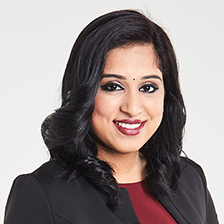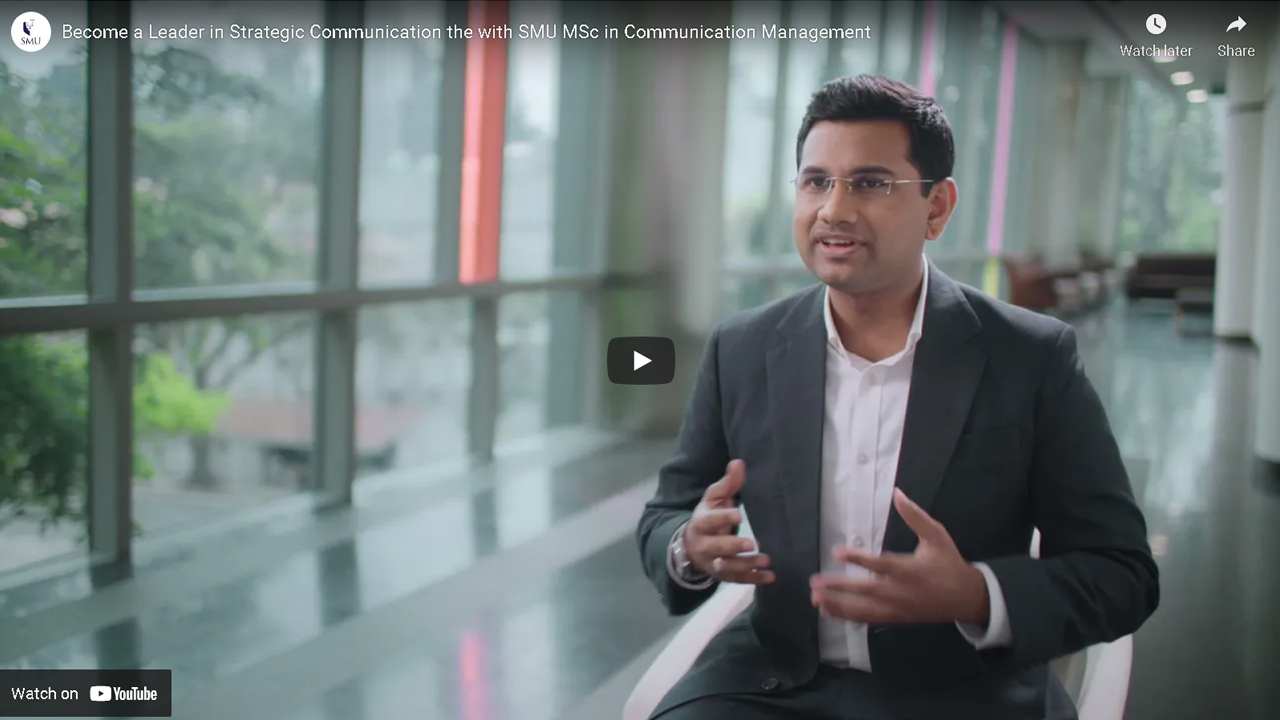-
12- to 15-
MONTHS DURATION(FULL-TIME/PART-TIME)
-
S$48,150
Tuition Fee (Inclusive of GST)
-
Application Closes
Full-time: October (for January intake)
Part-time: June (for August intake)
-
Pre-requisites
Bachelor's Degree
GMAT / GRE / SMU Admissions Test
TOEFL / IELTS (if the medium of instruction of your undergraduate studies was not in English) -
Working experience
Full-time: Minimum of two years of work experience
Part-time: Minimum of three years of work experience
About the Master of Science In Communication Management (MCM)
As Southeast Asia’s first Master of Science in Communication Management (MCM), this programme develops leaders who can play a strategic communication role in organisations and manage communication across cultures. Theoretical yet practical, it offers an integrated approach to corporate communication. Through the programme, you will get to interact with the best communication academics and practitioners.
Why pursue the MCM?
-
1
For effective thinkers and problem solvers
Acquire the skills to lead the strategic communication and management challenges facing organisations and make analytical decisions powered by data.
-
2
Where education works
Gain real-world experience with internship* opportunities through our network of 3,000 companies worldwide.
*Optional and applicable to full-time students only
-
3
World-class faculty
Benefit from the combined experience and expertise of eminent faculty with PhDs from top ranked universities who are ressearch active and gain valuable insights from thought leaders in the industry.
-
4
Expand your horizons
Enrich your education with global exposure from a one-week residency at an eminent institute of education for communication management and site visits to companies in the US.
Class Profile
-
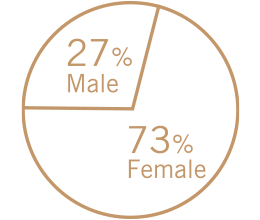 Gender
Gender3:8
-
 Average Age
Average Age33
-
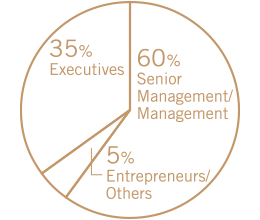 Career Statistics
Career Statistics -
 AVERAGE YEARS OF WORKING EXPERIENCE
AVERAGE YEARS OF WORKING EXPERIENCE9
Our global network

Kazakhstan
Students: 1000
Kazakhstan
Students: 1000

Testimonials
Industries that MCM Graduates Work In
-
 Education
Education5%
-
 Business / Financial Services
Business / Financial Services18%
-
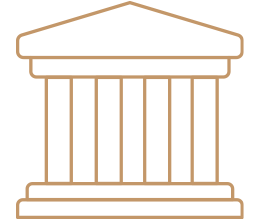 Government Agencies
Government Agencies23%
-
 Hospitality
Hospitality9%
-
 Pharmaceutical & Healthcare
Pharmaceutical & Healthcare2%
-
 Manufacturing
Manufacturing5%
-
 Media & Advertising
Media & Advertising18%
-
 Real Estate
Real Estate3%
-
 Retail
Retail4%
-
 Technology
Technology7%

Programme Details
Programme Calendar
Designed for flexibility, the MCM programme is available in both full-time (12 months) and part-time (15 months) formats.

Programme calendar is subject to change.
Programme Information
In the programme, you will learn how communication contributes to shaping strategic management by understanding the business functions of finance, strategy, marketing and accounting, to analyse key strategic communication and management issues facing organisations, to make data-based decisions by using data analytics and the latest scientific evidence and to manage communication with diverse stakeholders and across different media platforms.

With the globalisation of financial markets, it is vital that communication practitioners work closely with the C-suite to deliver effective two-way communication between the company and global investors to build trust and loyalty. This course introduces communication practitioners to the essentials of Investor and Business Communications and investigates how companies successfully communicate with the global investment community. You will gain an understanding of the factors that influence equity valuation and use this knowledge to develop a communication programme to engage investors and the financial community as part of your Group assignment.
No organisation can afford to ignore the importance of corporate reputation. A favourable reputation is an intangible prized asset and its contribution to a company's value is indisputable in today's business environment. This course will introduce you to the discipline of reputation management. Through short lectures, case studies and discussions, you will become familiar with the concepts, strategies and tools critical to building, protecting and enhancing corporate reputation.
Careers in management increasingly involve opportunities to collect, analyse and communicate with data so as to make effective managerial decisions and obtain optimal results. This eight-week course is designed to provide tangible and actionable skillsets for computational data mining, analytics and visualisation with strategic thinkers in organisations. You will learn how to collect, analyse and visualise real-world empirical data that potentially contains consumer insights. The first week will focus on the basics of data collection, while the following six weeks will involve hands-on training in data mining, analytics and visualisation in order to address real-world business questions. The course will culminate in Week 8 with group project presentations. The learning in the course will be informative within the programme as well as for the Capstone Project, which is the ultimate outcome of the MCM programme. Ultimately, such learning will prepare you to execute data-driven, evidence-based decisions in the digital economy.
Digital communication, especially social media, has opened up a whole new world of possibilities for communication management. The main goal of this course is to tap upon these possibilities, particularly the ability of organisations to further their engagement with their stakeholders so as to establish, develop and maintain excellent relationships with crucial stakeholders. Drawing upon established theories in the field of public relations such as Relationship Management Perspective and Dialogic Theory, this course will explore the various ways that organisations can capitalise upon the use of social media for communication management. This course will also touch on current issues affecting the industry due to the rise of social media and the resultant implications for the organisation, industry and society.
This course offers an overview of corporate communication by providing an up-to-date treatment of strategic communication in an age of disruption, and connects other modules via a common structure and understanding. With the world of business constantly changing, this course combines fundamental theoretical concepts with practical guidelines and cases to inform communication managers in their strategic and tactical communication work decisions. Designed for postgraduate students, with or without communication background or experience, this course will demonstrate how communication should be purposeful in order to foster trust between organisations and their stakeholders. In particular, it will look at the value of communication from the management and C-suite perspective, which you will acquire through lectures, case studies, guest speakers and team discussions.
This course is designed to provide cutting-edge knowledge in behavioural sciences so that you can perform an exercise to create actionable interventions, overcoming motivational, cognitive, social and affective barriers to solve problems in business and public policy practices.
This course examines digital media within the context of greater Asia and its fragmented markets, diverse cultural practices and differing regulatory environments. Students will learn how organisations have successfully (and unsuccessfully) worked across these markets via social networks, blogs, microblogs and other platforms including mobile. Differences between the markets will be highlighted and the managerial implications discussed. The course moves you through situational analysis and localisation, digital strategy, content strategy, measurement and talent management.
A strong corporate brand can help an organisation to establish relevancy and differentiation by winning the hearts and minds of various stakeholders. This course will introduce you to the most influential theories and practices in corporate branding. In addition, it will show you how the corporate brand can be expressed through the art and science of storytelling. Using the methods of studio pedagogy familiar to designers, the course will familiarise you with storytelling frameworks and principles, and demonstrate their power to express purpose and core value propositions.
Despite the proliferation of social media platforms, the mainstream, accredited media remains a critical player in public discourse. Building media relations with the mainstream media, with its suite of digital platforms, remains a key function of strategic communication (Sriramesh & Vercic, 2009). In media relations, organisations seek favourable publicity for their products and services (Sallot, Steinfatt & Salwen, 1998; Seitel, 2004; Sinaga & Wu, 2007; Yoon 2005) to “enhance the reputation of an organisation” (Bland, Theaker, & Wragg, 2005, p. 55). Studies on media relations have focused on different aspects of media work. This course emphasises the strategic aspects of media engagement aimed to equip organisational leaders with the knowledge of media relations so that they can incorporate this as part of their organisational strategy.
In this course, you will be introduced to the theoretical concepts and analytical tools required for formulating and implementing appropriate strategies that affect the enduring success of the entire organisation. Topics covered include external and internal environmental analyses, business-level strategies, corporate-level strategies and strategy process and implementation, as well as special topics such as competitive dynamics and competition in high-tech industries. The course emphasises the application of theory to a number of real-world strategic issues. You are encouraged to synthesise knowledge from other business courses into a comprehensive understanding of the competitive advantages of firms.
In this day and age, it is no longer sufficient for managers and leaders in organisations to be simply transactional or simply transformational. They also need to be fair, just, ethical, moral and responsible. The same might be said for organisations themselves. It is not enough for organisations to be profitable. They must also behave responsibly and sustainably. This course is divided into two sections that cover (1) what it means be ethical in an organisational setting and (2) the importance of corporate social responsibility (CSR) and its role in business and society.
What it means be ethical in an organisational setting
This part of the course is designed to explore, inform and stimulate thinking on issues related to behavioural ethics and responsibility as encountered in the corporate world. To create this intellectual exchange, it will focus on how individual and organisational behaviour is shaped by context as well as by biases, why these factors make it difficult for managers to be responsible leaders and what can be done about the influence of these factors. It is important to emphasise that the goal of this course is not the ethical or moral transformation of students, but the ability to develop a set of tools and frameworks (where possible) that allow you to manage effectively in a world increasingly characterised by stakeholders with competing needs and responsibilities.
The importance of CSR and its role in business and society
In this portion of the course, we explore the idea that businesses bear a responsibility to society and a broader set of stakeholders beyond their shareholders, an idea that has gained currency since the 1970s. The question remains, however, whether corporations have a responsibility towards and within society that goes beyond being merely well-run companies? Through this course, we will engage in a critical evaluation and discussion of different views on the meaning of CSR and the “proper” role of CSR in business and society. We will also discuss contemporary research and organisational practices that inform the integration of CSR within a firm's core business strategy and operations. We will understand that through strategically managed CSR, including ways to create shared value and apply sustainable business strategies, business corporations can potentially identify business opportunities that help address the world's most pressing challenges and manage relationships with important stakeholders who affect the firm's sustained success.
Finance is about the allocation of capital for productive use in the economy. In this course, we examine how financial assets are priced (asset pricing) and how firms raise capital (corporate finance).
Asset pricing
In this first portion of the course, you will learn about the importance of finance in society. You will get familiar with tools that are necessary in finance, such as the time value of money, and apply these tools to the pricing of bonds and stocks. Finally, you will learn about the fundamental concepts of risk and return, as well as portfolio theory, and how these relate to investing.
Corporate finance
This second part of the course is about financial decision making in a firm with the objective of maximising the firm's value. The key corporate finance decisions can be grouped into three types: investment decisions, financing decisions and dividends decisions. This segment aims to provide you with fundamentally important ideas about what to look for in making good decisions from a corporate manager's perspective.
In this project, you will effectively develop and present a workable solution to solve a corporate communication challenge. You will be provided an opportunity to demonstrate your ability to diagnose and investigate a live business issue, research the current literature, collect and analyse data and develop conclusions.
Corporate communication professionals increasingly work in business environments characterised as volatile, uncertain, complex and ambiguous (VUCA). We face changing definitions and boundaries of stakeholder groups, uncertainty and complexity in negotiations, dynamic development of information systems and challenges in the governance of organisations operating in such environments. During the summer programme at UCLA Anderson School of Management, each member of the faculty team presents frameworks and strategies drawn from their managerial discipline to enable you to build an important management toolkit and become an effective strategic leader in organisations that operate in these business environments. The faculty director of the programme assists participants in addressing the overarching challenges of working as a corporate communication professional in a VUCA world.
Events

How to Apply
- Application Period
- General Instructions
- Admissions Tests and Score Reports
- Referee Report
- Application Fee
- Applicant Self-Service
- Admission Requirements
- Pre-Application Assessment
Application Period
| INTAKE | APPLICATION DEADLINE |
|
January 2022 (Full-time) |
October 2021 (Final deadline) All applications based on rolling admissions. |
|
August 2022 (Part-time) |
June 2022 (Final deadline) All applications based on rolling admissions. |
Please read the following instructions carefully before completing your application. Supplementary instructions are given in each section of the application form. Once you have completed the form, we suggest you keep a copy for your record. Please complete the application form accordingly and attach copies of the documents as instructed. Your application will only be processed when we have received all the documents and payment.
Completing the Online Application
While filling in your application, take note that you will be required to submit the following:
- Updated Resume
- NRIC (For Singaporeans & PRs); Re-Entry Permit (For PRs); Relevant passes (EP, SP, DP etc)
- 2 Personal Statements
- Certified True Copies of Degree Scroll and Academic Transcripts
Personal Statement Questions:
- In approximately 300 words, tell us why you want to earn a Master of Science in Communication Management (MCM), and why now?
- In approximately 200 words, tell us what you hope to get out of the MCM programme?
Notes: Save your statements in Microsoft Word or PDF format; please print your name on all pages at the top right hand of each document. Proceed to post the documents on the Application Portal.
After Submitting Your Application
Once you have submitted your online application, EMAIL the following documents to our Admissions Team at mcm@smu.edu.sg:
- A recent passport size photo (please also submit online using the Applicant’s Self Service Functions - see below)
- Official GMAT/GRE Scores & Report (ignore this if you will be opting for the SMU Admissions Test)
Important Notes:
- Be sure to indicate your full name and application number on the email title.
- Upon receiving your email, our Admissions Team will follow up with you on the necessary steps to complete your application.
- Referee report – please remind referee to complete the recommendation form online via the link sent to their email.
- Supporting documents: Our Admissions Team will contact you again to arrange for a time to have these documents certified true copies at our SMU Campus. Alternatively, you may make an appointment with us to submit the certified true copies of your supporting documents, or have it delivered to us either by hand or by mail to:
Master of Science in Communication Management
Singapore Management University
Level 4, Postgraduate Programmes Office
50 Stamford Road
Singapore 178899
Contact Number: +65 6828 0882
SMU Admissions Test
If you do not have a GMAT/GRE Score Report, you may opt to complete the SMU Admissions Test.
The SMU Admissions Test has three components: Inductive, Numerical, and Verbal. Each test takes approximately 20-30 mins.
After completing your application, our Admissions Team will contact you via email on the next steps to taking the test.
The overall score of the test will be converted to a GMAT-equivalent score, and candidates who attain a good score and who fulfill all other admissions requirements will be invited for an interview with the Admissions Team.
For more information, download the factsheet.
1 referee report is required for admission to the MCM programme, and can be submitted online via the Application Portal. An automated email will be sent to your referees, requesting for them to fill up the online referee report, after you have submitted your application.
Your referee would be typically one of the following:
- A current or previous employer, or a supervisor/manager
- Any person who knows you in a professional capacity (for example: business partner etc.)
A non-refundable application fee payment of S$100 (inclusive of GST) must be made online in order for an application to be submitted successfully. Applications received without the application fees will not be processed. Payment for the application fee can be made via credit card (VISA or MasterCard) when submitting your application.
If you encounter problems with your fee payment, please contact our Office of Finance at +65 6828 0100 for assistance during office hours.
Once you have submitted your application and have received the application number confirmation email, you can use the Applicant Self Service functions to check your application status or update your contact information.
Please refer to the Applicant's Self Service Guide.
Admission Requirements
- A good Bachelor's degree
- Minimum work experience (post-Bachelor's degree) of three years (part-time track) or two years (full-time track)
- A good score in the SMU Admission Test / GMAT/ GRE*
- One referee’s contact details
- A valid TOEFL / IELTS score is required if the medium of instruction of your undergraduate studies was not English
*We will accept good undergraduate GPAs from SMU and local autonomous universities(NUS, NTU, SUTD, SIT, and SUSS) in place of the admissions test requirement. Candidates from local autonomous universities with a GPA under 3.5 will need to demonstrate some other academic quality score (e.g. GMAT, GRE, SMU Admissions Test). An undergraduate GPA is valid for five years after graduation.
The part-time mode of study of the MCM programme is open to Singaporeans, Singapore Permanent Residents (PRs) and foreigners with a valid Employment or Dependant’s Pass. International students will require student visas and are eligible only for the full-time mode of study. SMU will assist in the application of student passes for all full-time international students coming to SMU.
Note: Admission interviews will be conducted for shortlisted candidates.
Want to Know If You are Eligible for the Programme?
If you would like us to assess your suitability for the MCM programme, please deposit your resume here and we will contact you within three working days.
Deposit your Resume
Programme Fees
|
Application Fee |
Registration Fee |
Tuition Fees for AY 2022 |
|
S$200 inclusive of GST |
Amount payable upon acceptance to the programme |
S$48,150 inclusive of GST
Fee are subject to change from year to year |
|
Application Fee |
|
S$200 inclusive of GST |
|
Registration Fee |
Amount payable upon acceptance to the programme |
|
Tuition Fees for AY 2022 |
|
S$48,150* inclusive of GST
Fee are subject to change from year to year |
The tuition feed does not include meals, air travel, travel insurance, living and accomodation expenses incurred for the overseas exchange. Singapore Management University reserves the right to alter tuition and other fees as deemed appropriate.
SMU alumni will be entitled to a 10% discount off the tuition fee. 7% GST of the discounted tuition fee will apply.
* Goods and Services Tax (GST) is a tax collected on behalf of the Singapore Government and will be charge at the prevailing rate.
Scholarships and Financial Aid
Academic Excellence | Global Awareness | SMU-ASEAN | Leadership* | Women in Business* | Impact on Asia*
* Denotes Scholarships that students can apply for upon admissions into the programme
Students may apply for our SMU MCM Scholarships upon admission into the Programme. These Scholarships entails award amounts up to 30% of the tuition fee, with no bonds attached.
The SMU MCM will offer the Academic Excellence Award to high-quality candidates with exceptional academic performance. Awards are based on academic merit, final grades and admissions test score.
- Tier One: Awardees must have achieved an excellent admissions test score* (equivalent to GMAT score of 700 and above) and have demonstrated outstanding academic achievement.
- Tier Two: Awardees must have achieved an excellent admissions test score* (equivalent to GMAT score of 680 and above) and have demonstrated outstanding academic achievement.
The SMU MCM is committed to crafting a diverse and global academic environment that will contribute to the student’s personal and professional journey. The Global Awareness Award is awarded to individuals who will contribute to the class room diversity and enrich the learning experience of students by way of cultural, personal or professional backgrounds.
The SMU-ASEAN Scholarships do not require any applications. Applicants who meet the criteria below will be considered. The award amounts range from S$5,000 to S$10,000 (inclusive of GST) with no bonds attached to the scholarships.
Eligibility criteria:- Successful admission into the SMU Full-time or Part-time MCM Programme
- Open to nationals of ASEAN member countries
The SMU MCM recognises individuals with strong leadership capabilities who have exhibited outstanding leadership potential in their profession, organisation or community with the Leadership Scholarship. Applicants must demonstrate strong leadership capabilities or potential in personal and professional instances.
The Admissions Scholarship Committee will assess the following:
- Interview Performance
- Essay: “Please explain in 500 words why you consider yourself a leader"
- Leadership quality recognition such as:
- In the workplace: demonstrated career progression, line management progression, professional recognition such as awards, project success and team leadership
- Leadership qualities during student days: e.g. Chairperson of an interest group, class representation, etc.
- Attainment of any non-academic awards and scholarships.
The SMU MCM aims to recognise exceptional women with the “Women in Business” Award, those who have demonstrated outstanding leadership capabilities or potential in their professional or personal endeavours.
Applicants must have successfully received an admissions offer.
The Admissions Scholarship Committee will assess the following:
- Interview Performance
- Essay: “Please explain in 500 words why you should be awarded with the Women in Business Scholarship”.
- Leadership quality recognition such as:
- In the workplace: demonstrated career progression, line management progression, professional recognition such as awards, project success and team leadership.
- Leadership qualities during student days: e.g. Chairperson of an interest group, class representation, etc.
- Attainment of any non-academic awards and scholarships.
For enquiries, please contact our team at mcm@smu.edu.sg.
The SMU MCM is creating a significant impact in Singapore, extending now to Asia. We look forward to welcoming students who can demonstrate achievements in their professional, social and personal life that have created an impact on Asia, such as:
- Professional development or personal projects that have contributed positively to Asian regions or companies.
- Entrepreneurial projects with an Asian focus.
- Increased the awareness of Asia in other locations.
The Admissions Scholarship Committee will assess the following:
- Interview Performance
- Essay: “Please explain in 500 words the professional development, entrepreneurial or personal projects of an Asian focus, that have contributed positively to Asian regions or companies or have increased awareness of Asia in other locations."
- Impact: reach of impact, entrepreneurial projects, awards and helping the increased awareness of Asia will be taken into consideration.
For enquiries, please contact our team at mcm@smu.edu.sg.
The LKCSB Financial Aid Bursary enables suitable MCM candidates to obtain financial support from the Admissions Scholarships Committee to further their business studies with the SMU MCM programme. Candidates will have to provide supporting documents to prove financial need.
Alumni Discount
SMU and SUTD alumni will be awarded a 10% discount. If you have any questions, feel free to connect with us via email at mcm@smu.edu.sg.
Referral Discount
Candidates with a referee report completed by a student/alumni of SMU, in accordance with the admissions criteria, are automatically eligible to obtain a 10% discount of the total tuition fee.
If two or more company-sponsored (fully / partially) candidates from the same organisation are enrolling into the same intake, each will enjoy a 20% discount.
If a company which has previously sponsored (fully / partially) an employee, and the same company is sponsoring (fully / partially) another employee into the programme at a subsequent intake, that employee will enjoy a 15% discount of the total tuition fee.
This loan carries a low interest rate of 3.02% p.a. For more information, please call 6333 7777.
For enquiry on this, please contact:
Yvonne Tan
Contact details: 9646 8808 / (65) 6661 2157
Email: Yvonnesg.tan@cimb.com
This study assistance loan carries an interest rate of 4.60% p.a. For more information please call 6333 0033.
The application must be with a joint applicant who is a Singaporean or Singapore PR.
For enquiry, please contact:
Cheong Yu Shan / Sandy Chenxu,
Direct Sales Management, Community Financial Services
DID: (65) 9691 5134 / 9221 5148
Email: yscheong@maybank.com.sg / wpchenxu@maybank.com.sg
For more information please call +65 6595 9723.
For more information,please call 1 800 363 3333.
SBI provides student loans exclusively for students from India who have secured admission in selected educational institutions for higher studies in Singapore. Your loan is secured against a Standby Letter of Credit (SBLC) issued by SBI branch in India, backed by mortgage of property or cash deposits in India.
For enquiry, please email: studentloan@sbising.com.

FAQ
SMU has established a reputation for pushing the boundaries of innovation, creativity and academic excellence in redefining tertiary education. SMU introduced pedagogy previously unseen in Singapore, and has shown how a broad-based education and interactive teaching environment in small class sizes produces graduates well-prepared for the demands of the real world.
Yes, the programme is recognised by MOE. SMU is one of the youngest universities to receive accreditation from AACSB International, a long standing and internationally recognised global accrediting body for business and accounting programmes. SMU has earned accreditation for both its Lee Kong Chian School of Business (LKCSB) and School of Accountancy (SOA). In the same year, SMU’s LKCSB also became one of the youngest institutions in the world to be conferred the prestigious EQUIS accreditation.
The MBA programme is a more general degree whilst this programme is more in-depth programme. The programmes lead to different career paths. Please check with the respective Admissions Managers at mcm@smu.edu.sg for more details.
The MCM programme has both a full-time as well as a part-time track. Please click here for more information on the curriculum structure.
The part-time track will commence annually in January, and its duration is 15 months. The full-time track commences in May every year, and will run for 12-months. Both tracks will graduate together in April every year.
Please click here for more information on admission requirements.
GMAT is not a requirement for this course. Applicants have the option of taking either the GMAT or SMU Admissions Test (recommended for candidates who have not taken the GMAT) to apply for the programme.
Yes, you will have to submit your online application prior to taking the SMU Admission Test.
This programme is open to all nationalities, but foreigners will not be eligible for a student’s visa in the part-time course. Overseas students will need to obtain a different visa (employment pass, dependent's pass etc.) to enrol in the part-time track, or apply to the full-time track instead.
You can register an account at SMU through this link and upload your entire application online.
Yes, all applicants pay the same course fees.
Accommodation is self-paid. Flights are self-paid too, but we might be able to get discounts from corporate travel agents. This will depend on the number of students travelling on the same flight.





